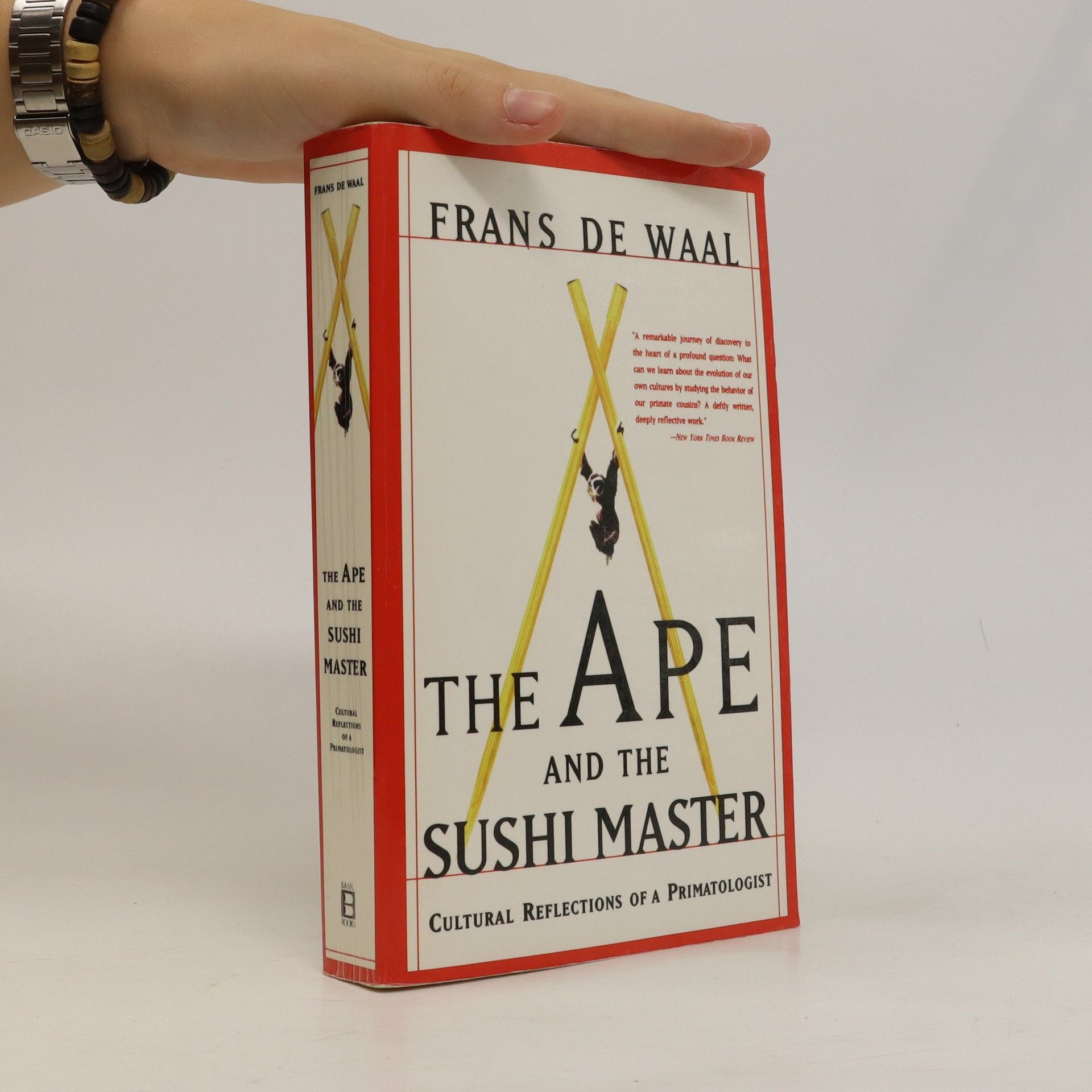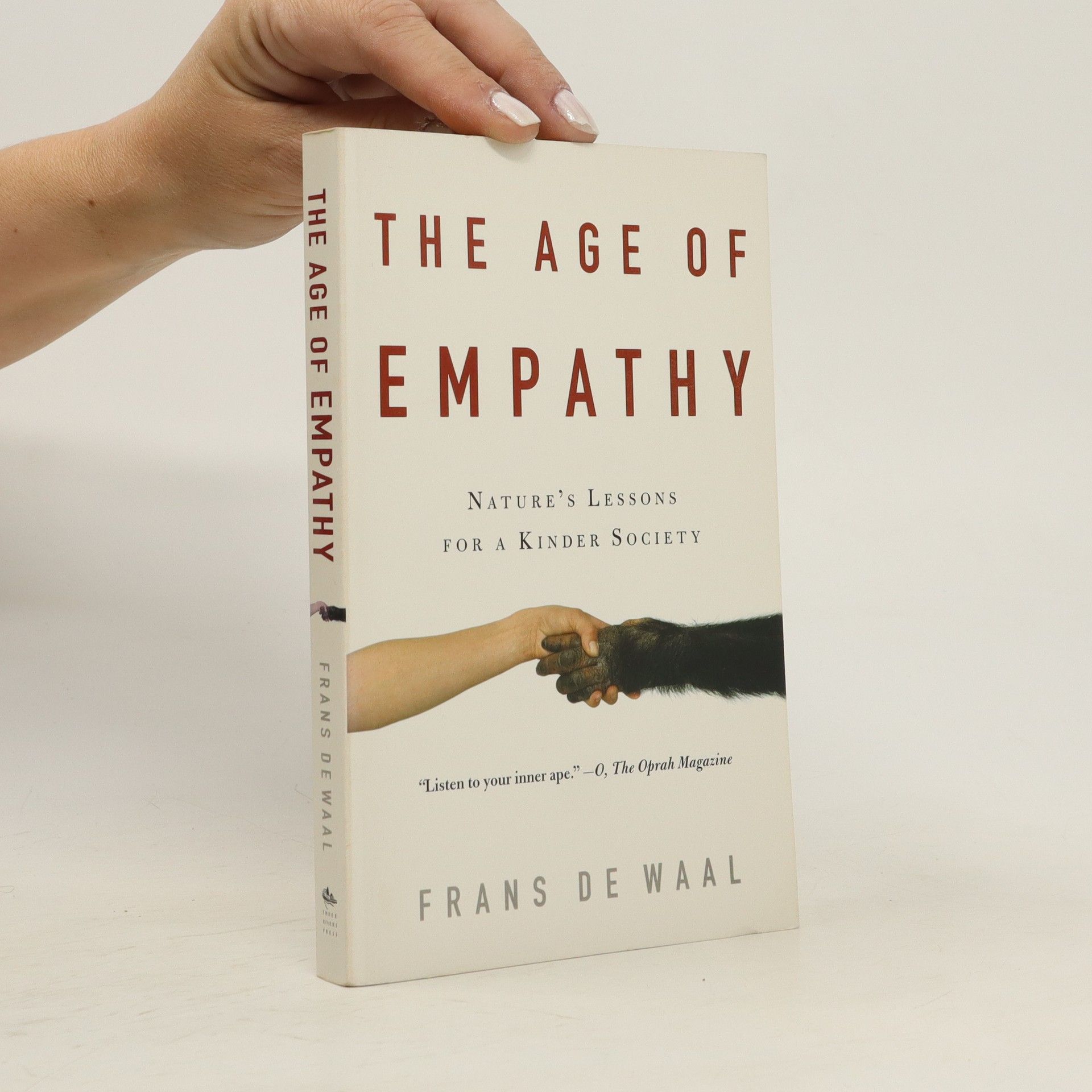A la recherche de l'humanisme chez les primates Pendant des années, l'éminent primatologue Frans de Waal a vu des chimpanzés réconforter des voisins en détresse, des bonobos partager leurs aliments ou des éléphants s'entraider. Aujourd'hui, étayant son étude de récits issus de l'observation du monde animal et d'analyses philosophiques éclairantes, de Waal démontre que la moralité humaine ne s'est pas imposée par le biais d'une instance supérieure et extérieure à l'homme, mais plutôt «de l'intérieur». Selon lui, enracinée en profondeur dans notre héritage animal, elle est bien le produit de l'évolution. Pour la première fois, en s'appuyant sur sa grande connaissance des primates, il enrichit notre compréhension de la religion moderne et élabore un raisonnement original fondé sur la biologie évolutionniste et la philosophie morale. Pensant toujours hors des sentiers battus, de Waal apporte ainsi de nouvelles perspectives sur la «nature humaine».
Frans B. M. de Waal Livres
Frans de Waal est un penseur influent qui explore les comportements complexes et l'intelligence des animaux. Son œuvre plonge dans les similitudes profondes et souvent surprenantes entre les animaux et les humains, remettant en question notre compréhension traditionnelle des esprits et des vies sociales animales. Par son écriture, de Waal invite les lecteurs à reconsidérer leur perception du règne animal et notre place en son sein. Son approche éclaire les implications éthiques et philosophiques de notre relation avec les autres espèces.

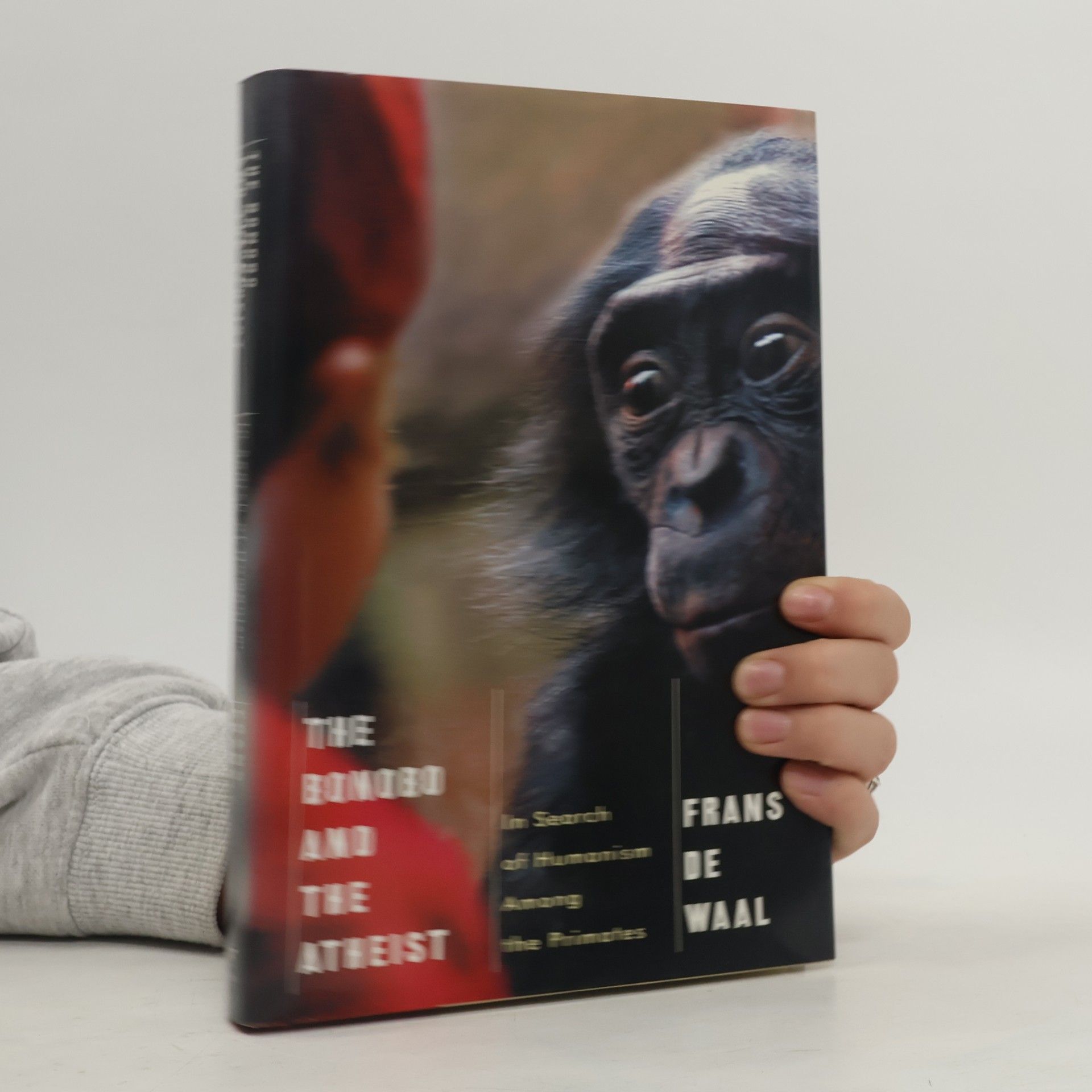
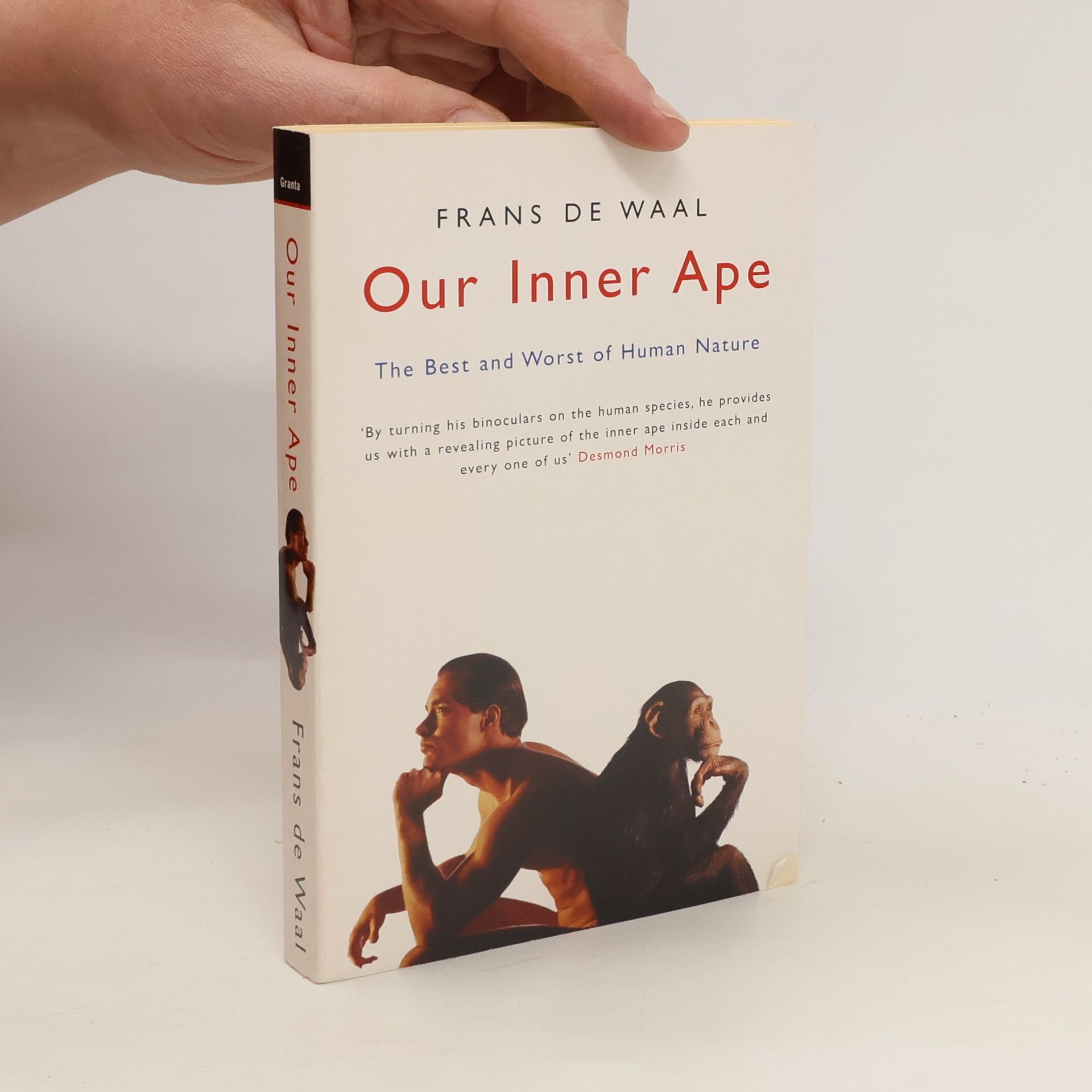
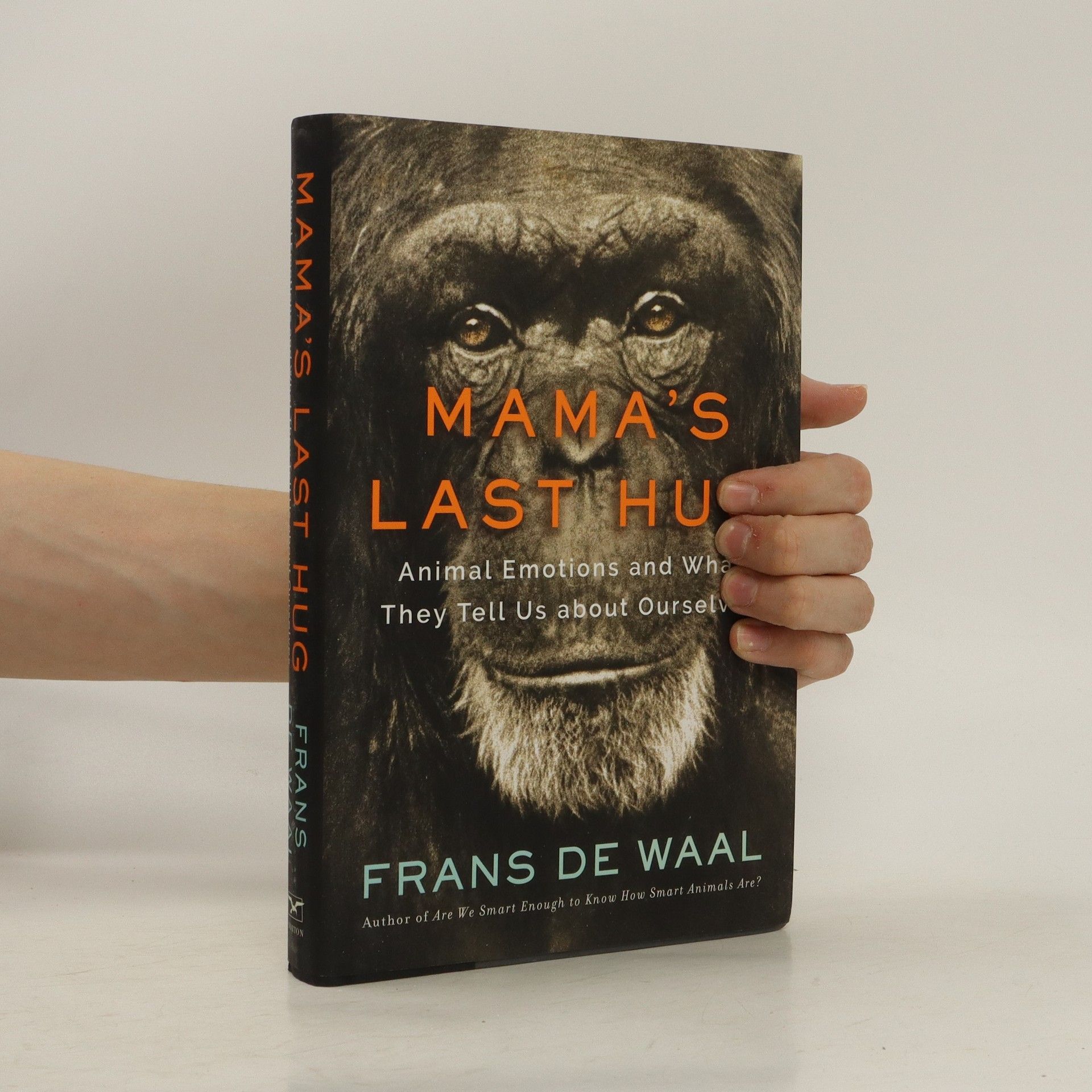

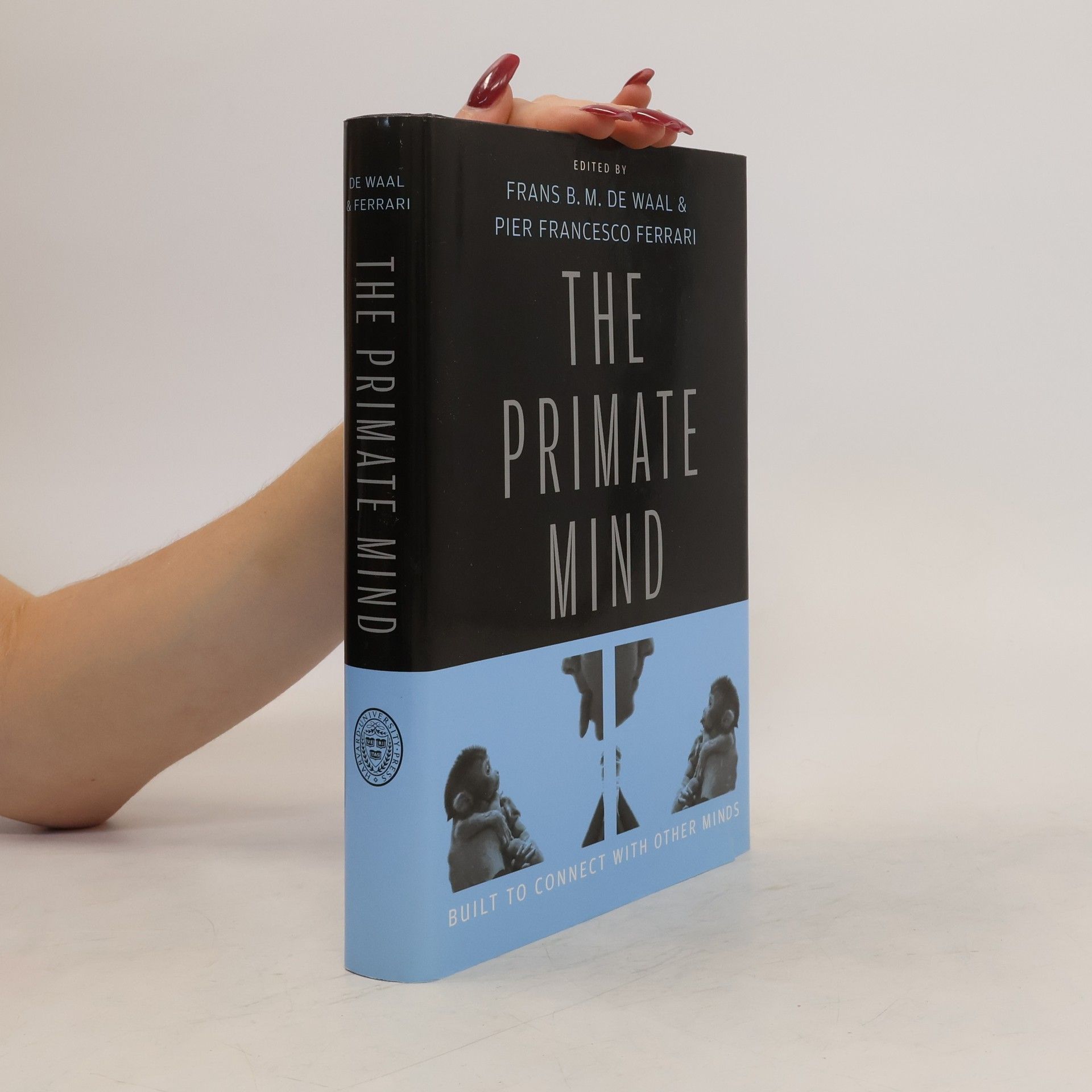

The Primate Mind
Built to Connect with Other Minds
Primates and Philosophers
- 232pages
- 9 heures de lecture
"Can virtuous behavior be explained by nature, and not by human rational choice? In Primates and philosophers, renowned primatologist Frans de Waal explores the biological foundations of one of humanity's most cherished traits: morality. Drawing on Darwin, recent scientific advances, and his extensive research of primate behavior, de Waal argues that modern-day evolutionary biology incorrectly reinforces our habit of labeling ethical behavior as humane and the less civilized as animalistic. His compelling account of how human morality evolved out of mammalian society will fascinate anyone who has ever wondered about the origins and reach of human goodness."--Page 4 of cover
Mama's Last Hug
- 336pages
- 12 heures de lecture
A whirlwind tour of new ideas and findings about animal emotions, based on de Waal's studies of the social and emotional lives of chimpanzees, bonobos, and other primates. De Waal discusses facial expressions, animal sentience and consciousness, Mama's life and death, the emotional side of human politics, and the illusion of free will. He distinguishes between emotions and feelings, all the while emphasizing the continuity between our species and other species. And he makes the radical proposal that emotions are like organs: we don't have a single organ that other animals don't have, and the same is true for our emotions -- Adapted from publisher's description
We have long attributed man's violent, aggressive, competitive nature to his animal ancestry. But what if we are just as given to cooperation, empathy, and morality by virtue of our genes? From a scientist and writer whom E.O. Wilson has called 'the world authority on primate social behavior' comes a lively look at the most provocative aspects of human nature - power, sex, violence, kindness, and morality - through our two closest cousins in the ape family. For nearly 20 years, Frans de Waal has worked with both the famously aggressive chimpanzee and the lesser-known egalitarian, erotic, matriarchal bonobo, two species whose DNA is nearly identical to that of humans. He brings these apes to life on every page, revealing their personalities, relationships, and power struggles, creating an engrossing narrative that explores what their behaviour can teach us about ourselves and each other.
The Bonobo and the Atheist
- 298pages
- 11 heures de lecture
In this lively and illuminating discussion of his landmark research, esteemed primatologist Frans de Waal argues that human morality is not imposed from above but instead comes from within. Moral behavior does not begin and end with religion but is in fact a product of evolution.
Le voleur d'ombres
- 291pages
- 11 heures de lecture
Enfant, il vole les ombres de ceux qu'il croise : amis, ennemis, amours... Et chacune de ces ombres lui confie un secret. Malgré lui, il devine ainsi les rêves, les espoirs et les chagrins des uns et des autres. Que faire de cet étrange pouvoir ? Il comprend bientôt qu'il peut l'utiliser pour aider ses proches à trouver le chemin du bonheur... Quelques années plus tard, le « voleur d'ombres » est devenu étudiant en médecine. A-t-il encore le pouvoir de deviner ce qui pourrait rendre heureux ceux qui l'entourent, comme Sophie, qui voudrait tant être aimée, ou Luc, qui voudrait changer de vie ? Pourra-t-il les aider à vivre leurs rêves plutôt que de rêver leur vie ? Et lui, sait-il où le bonheur l'attend ? [Source : d'après la 4e de couverture]
From the New York Times bestselling author of Mama's Last Hug and Are We Smart Enough to Know How Smart Animals Are?, a provocative argument that apes have created their own distinctive cultures In The Ape and the Sushi Master, eminent primatologist Frans de Waal corrects our arrogant assumption that humans are the only creatures to have made the leap from the natural to the cultural domain. The book's title derives from an analogy de Waal draws between the way behavior is transmitted in ape society and the way sushi-making skills are passed down from sushi master to apprentice. Like the apprentice, young apes watch their group mates at close range, absorbing the methods and lessons of each of their elders' actions. Responses long thought to be instinctive are actually learned behavior, de Waal argues, and constitute ape culture. A delightful mix of intriguing anecdote, rigorous clinical study, adventurous field work, and fascinating speculation, The Ape and the Sushi Master shows that apes are not human caricatures but members of our extended family with their own resourcefulness and dignity.
The Age of Empathy
- 291pages
- 11 heures de lecture
'Kindness and co-operation have played a crucial role in raising humans to the top of the evolutionary tree ... We have thrived on the milk of human kindness.' ObserverBY THE AUTHOR OF ARE WE SMART ENOUGH TO KNOW HOW SMART ANIMALS ARE?'There is a widely-held assumption that humans are hard-wired for relentless and ruthless competition ... Frans de Waal sees nature differently - as a biological legacy in which empathy, not mere self-interest, is shared by humans, bonobos and animals.' Ben Macintyre, The TimesEmpathy holds us together. That we are hardwired to be altruistic is the result of thousands of years of evolutionary biology which has kept society from slipping into anarchy. But we are not alone: primates, elephants, even rodents are empathetic creatures too.Social behaviours such as the herding instinct, bonding rituals, expressions of consolation and even conflict resolution demonstrate that animals are designed to feel for each other. From chimpanzees caring for mates that have been wounded by leopards, elephants reassuring youngsters in distress and dolphins preventing sick companions from drowning, with a wealth of anecdotes, scientific observations, wry humour and incisive intelligence, The Age of Empathy is essential reading for all who believe in the power of our connections to each other.
Are We Smart Enough to Know How Smart Animals Are?
- 336pages
- 12 heures de lecture
A New York Times bestseller: "A passionate and convincing case for the sophistication of nonhuman minds." —Alison Gopnik, The Atlantic Hailed as a classic, Are We Smart Enough to Know How Smart Animals Are? explores the oddities and complexities of animal cognition—in crows, dolphins, parrots, sheep, wasps, bats, chimpanzees, and bonobos—to reveal how smart animals really are, and how we’ve underestimated their abilities for too long. Did you know that octopuses use coconut shells as tools, that elephants classify humans by gender and language, and that there is a young male chimpanzee at Kyoto University whose flash memory puts that of humans to shame? Fascinating, entertaining, and deeply informed, de Waal’s landmark work will convince you to rethink everything you thought you knew about animal—and human—intelligence.

